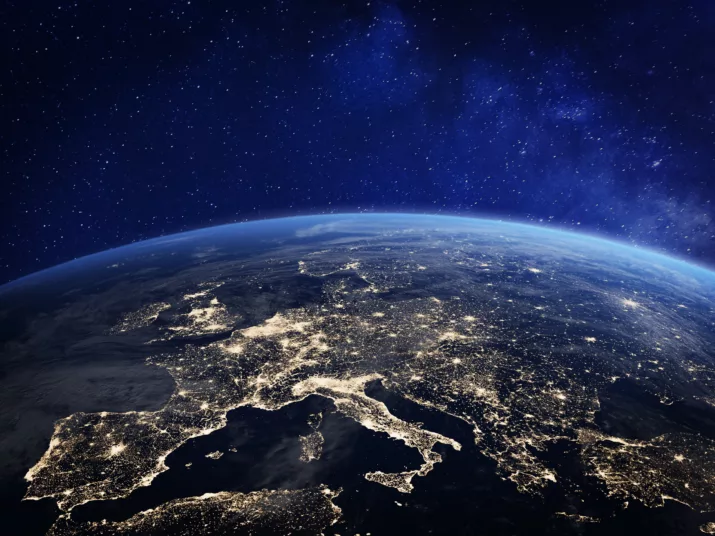
WHAT ARE THE IDEAS AND VISIONS THAT CAN IMPROVE EUROPEAN DEMOCRACY?
THE FUTURE OF DEMOCRACY IN EUROPE
The European Union (EU) plays an important role for democracy in Europe: after the Second World War, it provided for peace and prosperity and, even today, continues to promote democratic structures – for example, by adopting the EU Charter of Fundamental Rights or by funding programmes to strengthen democracy in Europe. And what does the future have in store? How democratic can and must the EU be? We’ll show you some ideas and visions for advancing democracy in Europe.

DOES THE EU HAVE A DEMOCRATIC DEFICIT?
The ideas and visions for the future of European democracy presented above are based on improving the current political system of the European Union (EU) and making it more democratic – after all, discussions about the EU’s state of democracy go back to its foundation. But how can we determine the state of democracy in the EU and to what can we compare it? Two points of view:
Now let's take a closer look at three visions for the future of European democracy:
STRONGER INVOLVEMENT OF CITIZENS
People frequently call for the EU to become more citizen-oriented and more responsive to the wishes of the European population. The Conference on the Future of Europe that began in May 2021 was a first step on the path towards making more citizen participation in the EU a reality. On a Europe-wide platform, in all 24 official languages, people were able to submit and discuss proposals and ideas on the future of the EU. In addition, discussion events took place in all EU countries. The European Citizens’ Panels in Brussels, for example, involved the random selection of 200 citizens who were then brought together to debate their ideas for shaping the future of the EU. After a year of discussion, 49 proposals and 300 measures were published in the conference’s final report. How do people in Europe envision the future of the EU? Here’s an excerpt:
REFORM OF THE EUROPEAN ELECTIONS
Every five years, the citizens of all EU member states elect the European Parliament (EP). Its members are determined on the basis of national lists – German citizens therefore elect German members of parliament. The 2019 elections were the first to have transnational lists and thus a common electoral list in several European countries. This made it possible for a German citizen from Saarbrücken to vote for a Greek candidate from Athens. The idea behind it? Transnational lists are intended to promote a European perspective on problems in Europe and, in this way, strengthen European democracy as a whole. So far, so good. Let’s take this argument one step further – with...
LEAD-CANDIDATE SYSTEM
In Germany, in particular, there are many voices in favour of a direct election of the President of the European Commission. The EU head of government would thus be elected in a way similar to the way the presidents of France or the USA are elected today.
Do you want to learn more about visions for the future of European democracy? Then join us on International Democracy Day, 15 September 2023, for our Young Visions for the Future of Europe event in cooperation with the Schwarzkopf Foundation.